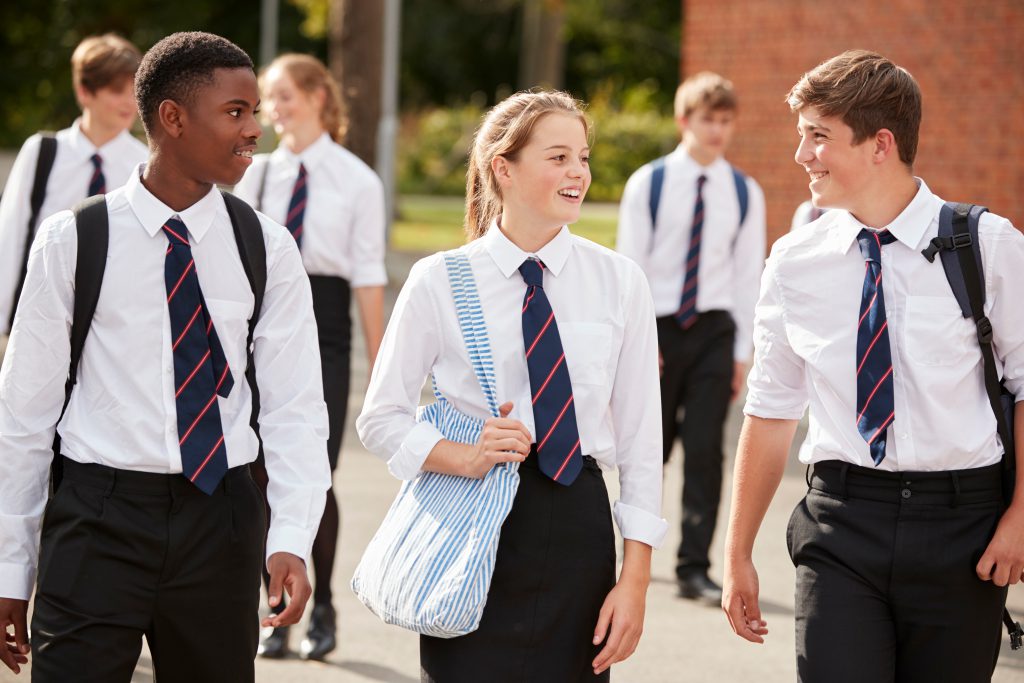The South African Schools Collection
Finding The Right School
Deciding on the right school for your child is a parent’s second-biggest decision after choosing their name: that’s how Durban mother, Caley Rosenberg, felt late last year when she had to choose a school for her child, who was starting Grade R.
She says it’s tough on parents deciding which school is going to teach and shape their child for more hours in a day than they are.
“Most of us are dictated to by cultural or religious backgrounds, financial availability, past experiences, family backgrounds and ultimately the best fit for our child,” says Rosenberg, a mother of three daughters, aged six, four and one.
Some of the issues she had to consider was whether to choose private or government, co-educational or single sex, the school’s religious views and values, academics and teachers, cultural dynamics, sports facilities and coaches, cultural offerings and facilities, classroom size, number of pupils and environment, financial viability, proximity and area.
She also had to take a holistic approach to the decision: for instance, if they chose a particular primary school would the children be able to get placement into specific high schools?
“I spoke to other parents. Other aspects I considered were word of mouth, whether other families had been happy, any challenges, and how the school had dealt with bullying and social media.What foundation did they lay for children to be kind, caring and courteous to people around them? Are they embracing technology too much? For some families a little bit of old-school tradition is still important. It’s a tough decision,” says Rosenberg.
She points out that in the past, all three kids would attend the same school, but this is no longer necessarily the case.
“A lot of the time, when you have three kids with different personalities, one school may not fit all three. I often found there was always one child who was unhappy in the school they were at. And being unhappy meant they did not thrive. It’s about adopting a mindset that not all three of my daughters have to start and finish at the same school, because they will have different paths in life, strengths, weaknesses and personalities,” she says.
Doing the research
It’s a difficult decision, and it takes some serious research to find the right fit for your children. Parenting expert, author and speaker, Nikki Bush, says choosing a school that suits your child is of utmost importance – and there’s no right or wrong way to go about it.
“Every family has different needs: their finances, proximity, whether they have extended help or a domestic worker to help fetch kids after school. The issue of transport is big. It all has a bearing,” says Bush.
“It’s not all about the child, and not all about the convenience for parents. Family is where hope lives. If you choose a school that is going to tear the family apart financially or because of distance, then think again.
“Sending your child to the best school you can afford, or which is best for your child, does not mean you should be absent parents because of finances or distance.
“Children need their parents in their daily lives. Children need to feel safe and secure, and not just from going to a good school,” says Bush.
She adds that it’s not always easy, and there are various factors that parents consider.
“Families who move from country to country, or plan to move to another country in the future, often look at what curriculum is being offered,” she says.
“What is the matric qualification that would be accepted and is compatible with international universities? Some parents look at schools that offer good networking opportunities.
“Another aspect is sport, depending on the child’s strengths and which school offers the best coaches for that sport. Or culture: does the child have an interest in theatre, drama or art? There’s the school ethos and the school’s academic standing.
“Those looking for high schools need to interrogate the matric results and school’s performance over the years, leadership of the school and how long the head has been there, staff turnover and feeder areas. And it’s not just the school fees, but the lifestyle your child would want to blend into. It can become uncomfortable for family and child when it comes to socialising and they don’t have the money or clothes for socialising.
“At the end of the day the child needs to be well rounded, happy and settled, should not experience high anxiety in the system chosen, be able to make friends and able to do well enough to access the next level,” says Bush.
Bush advises parents to visit schools not just on their open days, but when they are at their busiest, to get a real sense of what the school atmosphere was like.
“When you hear is a lot about a particular institution, take notes. There are schools coming up everywhere,” she added. “If you can get your child into a good state school for their primary school years, go for it, and save for a private high school,” she says.
She adds that monastic schooling is better for boys and girls. “Girls with boys are pushed to do better. Girls can also push boys to excel. But boys without girls can also focus better without distraction,” says Bush.
Public vs Private
Prof Wayne Hugo, education expert at the University of KwaZulu-Natal, says it is not just rich parents who are finding out which were the better performing schools for their child, but also parents in rural areas.
“The tragedy of it is that the choices they have are so limited. In rural and peri-urban areas, they are actively finding out which are the better schools and are fighting to get their children into those schools. That, however leads to overcrowding,” says Hugo.
Hugo points out that there are a lot of new-generation private schools emerging that offer more competitive fee structures.
“They are a third to half less than other private schools,” he says. “The choice for middle-class parents has gone up substantially in terms of what is being offered, but lots of middle-class parents are struggling to afford them.”
Important questions to ask
Prof Labby Ramrathan of the University of KwaZulu-Natal’s School of Education, says parents need to research prospective schools and consider several factors, such as location, infrastructure, the school’s ethos, access to supportive facilities, learner performance trends and teacher profiles.
“The location of school relates to an exploration of the nature of the community that surrounds the school and its influence on schooling; accessibility to the school from home, both for the learner as well as the caregiver and in terms of travelling cost and mode of transport; and accessibility of supporting services like internet connectivity,” says Ramrathan.
“Learners need an interesting, neat, clean and inviting campus to inspire them to want to learn. Dilapidated buildings are not conducive environments for teaching and learning, and learning opportunities are lost because of an uninviting context. Toilet facilities should be another consideration in terms of the child’s health.”
He says the school ethos sets the focus and pace of teaching and learning, and will ultimately influence the realisation of the child’s potential.
“Learner performance trends and teacher quality are basic issues that will guide the selection of schools. No one wants to send their children to a non-performing school, or one that does not have qualified teachers,” says Ramrathan.
Ruksana Osman, professor and dean in the Faculty of Humanities at the University of the Witwatersrand, says a school is an important part of a child’s life and should be selected carefully.
“In particular you need to ensure that the school is well run, with teachers who are qualified to teach a strong extramural programme that offers a range of activities from the arts to science to sports,” says Osman. “Co-ed schools offer the advantage of allowing children access to a diverse range of students from a variety of backgrounds and presentations. The advantage of a single faith school is parents can be assured that the values at home are continued at school.”






 Sign-up and receive the Business Media MAGS newsletter OR SA Mining newsletter straight to your inbox.
Sign-up and receive the Business Media MAGS newsletter OR SA Mining newsletter straight to your inbox.